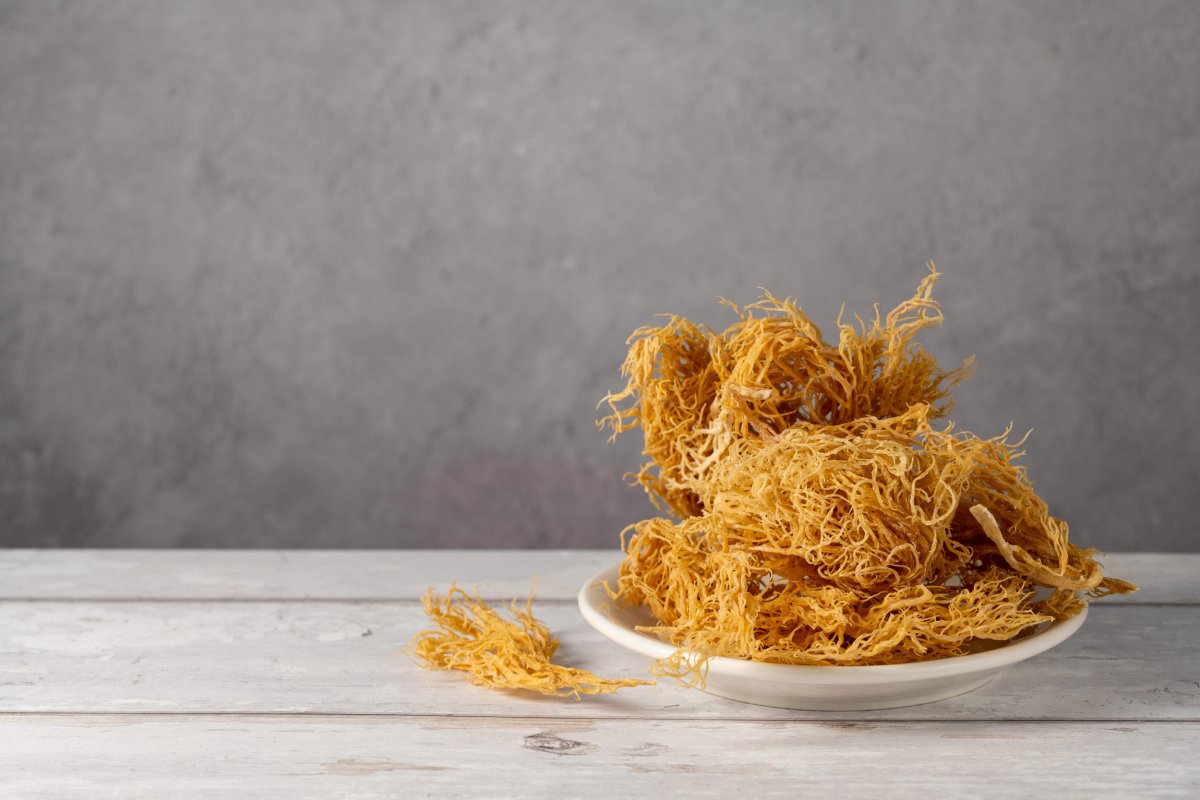Sea moss is trending on TikTok as a so-called superfood that is connected to a long list of supposed health benefits, but is it worth the hype?
In a TikTok video that was posted earlier this year that currently has 2.1 million views, beauty guru Tatyana—of the channel @tatlafata—said she had been taking sea moss for two years.
“I swear by it,” she said in the video. “It is the best thing I have ever incorporated into my healing holistic journey. Sea moss is an insane superfood. It contains 92 out of 102 minerals on this world. It is insane. I take it by the spoonful every day.”
She credited sea moss with clearing her hormonal acne, getting rid of her anxiety, getting rid of her brain fog, giving her a glow from within, improving her energy and cortisol levels, “It has done so much for me. I can’t even explain to you,” she said.
In another TikTok video posted in August by @herbal.ash, a clinical herbalist said that the “92 out of 102 minerals” claim was unconfirmed but added: “I still love and recommend taking sea moss.” The video currently has more than 900,000 views.
Benefits she listed about sea moss included supporting thyroid function, boosting energy levels, improving skin health, supporting detoxification, improving oxygen transport in the blood, and anti-inflammatory properties—depending on the color.
Newsweek, meanwhile, spoke to a nutritional therapist and an herbalist to find out more about sea moss and its health benefits.
“Sea moss has gained popularity recently in wellness circles, with claims about its numerous health benefits,” nutritional therapist Janie Perry, of Janie Perry Nutrition, told Newsweek. “It’s praised for its rich nutrient content, including essential vitamins, minerals—especially iodine, omega-3 fatty acids, and antioxidants.”
Medical herbalist Dr. Chris Etheridge, chair of the British Herbal Medicine Association, told Newsweek that “sea moss (Chondrus crispus) is not actually a moss, but is actually a type of red sea algae—seaweed—that grows on Europe’s and North America’s Atlantic coasts.”
He added: “It is also known as Irish moss or carrageen moss. Sea moss is tufted with thin, fan-like fronds that can be multiple colors—from green or yellow to dark purple.”
Etheridge said that the plant contained a lot of a starch called carrageenan, which was used in the food industry as a thickener and stabilizer in ice cream, non-dairy milks and toothpaste.
“Sea moss has traditionally been used as an infusion to soothe coughs, indigestion and acid reflux, and can be made into a lotion for use on dry hands and hemorrhoids—as it has a soothing and anti-inflammatory action,” he said.

Sea moss is trending on TikTok as a so-called superfood that is connected to a long list of supposed health benefits, but is it worth the hype?
Gingagi/Getty Images
Both experts mentioned, however, that sea moss could be useful—or dangerous—for the thyroid due to its iodine content.
“Sea moss is a natural source of iodine, which is essential for proper thyroid function,” Perry said. “The thyroid regulates metabolism, energy levels and other hormonal functions. Too much iodine can negatively impact thyroid function, especially for those with thyroid disorders. Therefore, if you’re considering sea moss for its thyroid-boosting effects, consult with a healthcare professional first.”
Other than iodine, Etheridge said that sea moss contained a lot of beneficial nutrients, including calcium, magnesium, zinc, potassium, and B vitamins, as well as antioxidants—which can help calm inflammation in the body.
Perry explained that sea moss was associated with good skin health, immune health, muscle function and heart health because of all the nutrients it contained.
Both experts also said that sea moss could be good for the gut, due to the prebiotic fiber that it contained, which could support the growth of beneficial bacteria in the gut, in turn supporting other systems associated with gut health, such as immunity.
“Studies have shown that sea moss food supplements may reduce the risk of salmonella infections in humans and animals, and that it contains a protein that has an antibacterial activity against Staphylococcus aureus,” Etheridge said. Both salmonella and staphylococcus are bacteria that can cause dangerous infections in humans.
However, Etheridge said that evidence supporting all of these claims was relatively limited.
“Clinical studies into the medicinal use of sea moss are sparce,” he said. “But in vitro and animal studies do suggest a range of possible beneficial effects on the gut microbiome and immunity, a reduced risk of salmonella infections, a possible anticoagulant effect, and that it may increase male fertility.”
Anticoagulants are medicines that help prevent blood clots to reduce the risk of strokes and heart attacks.
Etheridge added that he would recommend sea moss to patients “to soothe a dry cough following a chest infection, or to those with mild, occasional acid reflux,” but not to those with thyroid issues.
Do you have a tip on a food story that Newsweek should be covering? Is there a nutrition concern that’s worrying you? Let us know via [email protected]. We can ask experts for advice, and your story could be featured in Newsweek.
